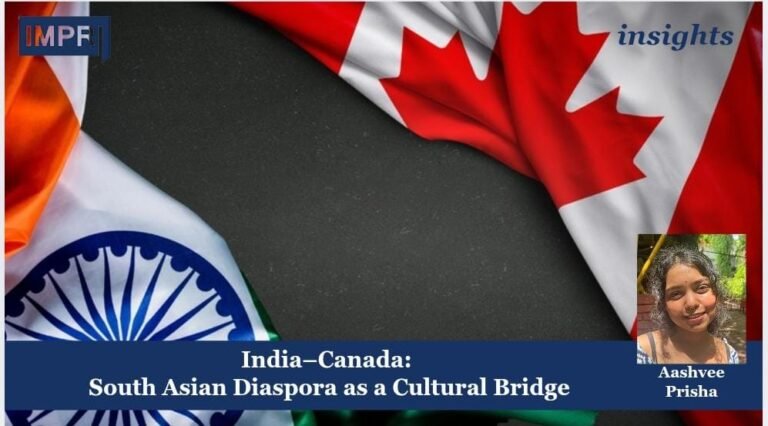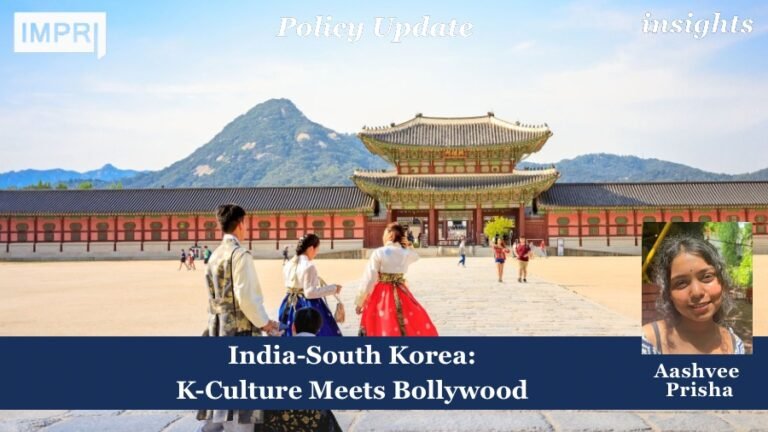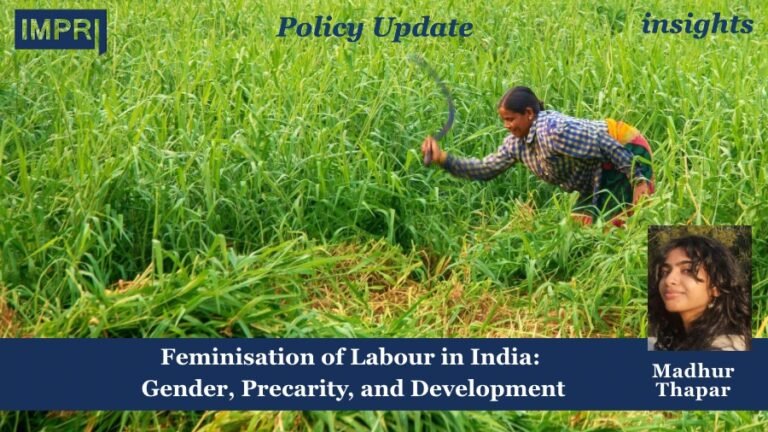Sumit Dahiphale
Background
The International Day of Democracy is celebrated worldwide on 15 September each year. It was established through a resolution passed by the UN General Assembly in 2007. It encourages governments to strengthen and consolidate democracy. On this day we get an opportunity to review the state of democracy worldwide, highlight the important role of parliaments, and celebrate their capacity and mandate to deliver justice, peace, development and human rights.
This year’s theme for the International Day of Democracy 2024 is the ‘Importance of Artificial Intelligence as a tool for good governance.’ Last year’s theme for International Democracy Day 2023 was ‘Empowering the next generation.’
Democracy is a system of government in which laws, policies, leadership, and major undertakings of a state or other polity are directly or indirectly decided by that country’s citizens. There are different types of democracy around the world, but in India, there is an Indirect form of Democracy, Also known as Representative Democracy. In an indirect democracy, people rule through the representatives. This means that citizens elect representatives to parliament and these representatives make decisions on their behalf.
Performance
India Leads the Way: A Global Milestone in Democracy-
India has created a world record of 642 million voters in this year’s election. This is a historic moment for all Indians. This is 1.5 times the voters of all G7 countries and 2.5 times the voters of 27 countries in the European Union (EU). This year is not just an election year for only India, it’s perhaps the election year for all major countries.
Globally this year major countries held elections like Russia, United Kingdom, South Africa, and India and almost all neighboring countries of India also faced elections like Bhutan, Bangladesh, Pakistan, and Maldives etc. The USA and Sri Lanka will face elections at the end of year 2024. More voters than ever in history will head to the polls as at least 64 countries (plus the European Union) are participating in this year’s elections. A record number of voters, almost nearly half of the world’s population will be involved in this process of election for shaping their futures.
Functioning
UN’s Role in Promoting Democratic Principles
The United Nations (UN) does not advocate for a particular model of government but supports democratic governance as a set of essential values and principles. These principles promote greater participation, equality, security, and human development.
While the term “democracy” is not explicitly mentioned in the UN Charter, its foundational principle, “We the People” embodies the democratic ideal that the will of the people is the source of legitimacy for sovereign states and, consequently, the UN itself. This makes democracy a core value of the UN.
The UN promotes democracy by supporting human rights, development, and peace and security. To further this goal, the UN provides electoral assistance to approximately 60 countries annually, either upon request or through mandates from the Security Council or General Assembly. This assistance encompasses advisory services, logistics, training, civic education, computer applications, and short-term observation, making the UN a trusted impartial actor in promoting democratic governance worldwide.
Impact
The Secretary-General (António Guterres) Message for the International Day of Democracy for 2024
“ The International Day of Democracy is an opportunity to reinforce the importance of upholding free speech, civil liberties, and the rule of law; ensuring accountable institutions; and protecting and promoting human rights.
This is especially crucial in a year where more than 50 countries – representing half of the global population – are holding elections.
Yet, these rights and values are under attack around the world. Freedoms are being eroded. Civic space is diminishing. Polarization is intensifying. And mistrust is growing.
This year’s Democracy Day focuses on Artificial Intelligence as a tool for good governance.
Left unchecked, the dangers posed by artificial intelligence could have serious implications for democracy, peace, and stability. This can start with the proliferation of mis- and disinformation, the spread of hate speech and the use of so-called deep-fakes.
Yet, AI has the potential to promote and enhance full and active public participation, equality, security, and human development. It can boost education on democratic processes, and shape more inclusive civic spaces where people have a say in decisions and can hold decision-makers to account.
To seize these opportunities, it is critical to ensure effective governance of AI at all levels, including internationally.
The inclusive and geographically diverse High-Level Advisory Body on Artificial Intelligence has released a report with recommendations on how to harness the benefits of AI while mitigating the risks.
The message is clear: AI must serve humanity equitably and safely.
This month’s Summit of the Future offers a crucial opportunity to strengthen international cooperation, build trust, and safeguard current and future generations.
On this International Day of Democracy, let’s keep working to build a more inclusive, just, and equal world. ”
Emerging issues
There are some challenges to democracy: Political Challenges, Economic Challenges, Social Challenges, Technological Challenges, and Global Challenges.
In a democracy, an election is a crucial factor. Without an election it can’t be a properly functioning democracy for a long time. That’s why at certain times nations host elections but during the election, there are many political leaders and political parties that do things that might be not good for countries futures or also not for humanity. They announce schemes and make promises that might not be good for countries when we look at them from an economic perspective or social perspective.
In a democracy, some people are highly motivated by their particular agendas. They don’t focus on what are the future challenges for their country and the country would get more benefits if we chose that particular leader who considers the country’s benefits first. They prioritize their agenda issue compared to any other development issue and choose the leader who fulfills their agenda. It might be beneficial for any ethnicity, particular region or some people but not for the whole nation. It directly affects common people and society gets slowly diverted towards extremism.
When we focus on South Asia, we see Bangladesh where On August 5, Prime Minister Sheikh Hasina resigned from her position and took asylum in India for their safety. In a democracy, this is the fundamental right to express concerns and convey their view to the government in a peaceful way but not in a way like doing violence or destabilizing an own country.
We saw what’s happened in Bangladesh, citizens have destroyed their country’s property and many infrastructures are damaged. Citizens have the right to stand against their government to oppose their policy, protest is a good example of a healthy democracy until and unless there is no intervention of any outsider power because many major countries interfere in it to achieve their geopolitical goals. But in autocracy or dictatorship, it does not happen easily. That doesn’t mean autocracy is good. In autocracy Also, many challenges are the main challenge is the citizens have limited rights in their own country and Major power is owned by their government.
Inflation can significantly impact democratic societies, as demonstrated by recent events in Pakistan. The economic strain has led to desperate measures, such as the looting of Dream Bazaar Mall, highlighting how inflation can drive people to extreme actions to meet their needs. Furthermore, Pakistan’s historical challenge of frequent leadership changes, with no prime minister completing a full term, adds to the concerns about the stability and effectiveness of its democracy.
A mob stormed a mall in Pakistan’s Karachi (Photo: CNN-News 18)
The recurring threat of military coups in many countries undermines democratic governance. These coups frequently destabilize democratically elected governments, leading to widespread violence, regional instability, and a breakdown of law and order. Moreover, the effects of these coups often extend beyond national borders, impacting neighboring countries as well.
Migration is also a main challenge for democracy if somehow a country gives asylum to a large number of people then the country faces economic and political challenges. Giving asylum to refugees increases countries’ expenses in terms of assisting them and providing them with basic facilities. Also, some radical elements misuse and migrate to other nations to fulfill their personal goals.
Many countries also face law and order issues, so governments have to ensure firstly they do security checks on those immigrants who enter their country for asylum, to avoid any radical people entering the nation. It doesn’t mean that countries should stop giving asylum to the people. Major Countries have to ensure that they try to solve the core problems of refugees, mostly people migrate to other nations because they face inflation, discrimination, injustice or political instability in their country.
Misinformation is also another emerging challenge for democracy. In today’s world, there is a lot of fake news and misinformation can easily spread and it is going to destabilize the whole country in a few moments Because of fake news. That’s why citizens should have to fact-check the news before sharing it with social media. It divides the citizens into different groups and it leads to disrupting the country’s situation.
Way Forward
In conclusion, democracy remains an essential pillar of our modern world. It empowers citizens to actively participate in shaping their society by electing leaders who represent their interests and aspirations.
To ensure a healthy democracy, a vigilant public must actively monitor and challenge those in positions of authority to ensure they uphold the interests of the people. Even as future challenges may emerge, our commitment to strengthening democratic institutions and practices must remain unwavering. Through legislative and governance reforms, we can build a more equitable and inclusive democratic society for everyone.
References
1) United Nation, International day of democracy –
https://www.un.org/en/observances/democracy-day
2) United Nations, Democracy- https://www.un.org/en/global-issues/democracy#:~:text=The%20values%20of%20freedom%2C%20respect,effective%20realization%20of%20human%20rights.
3) Akashvani, All India Radio, 2024-
4) UNIS/SGSM/1432, 10 September 2024-
https://unis.unvienna.org/unis/pressrels/2024/unissgsm1432.html
5) Time, koh ewe, 2023-
https://time.com/6550920/world-elections-2024
6) Hindustan times, Sanya Jain, 2024-
7) Reuters, Syed Raza Hassan, 2022-
8) Daily sabah, Agence France-Presse – AFP, 2024-
About the Contributor – Sumit Dahiphale is a Research intern at the Impact and Policy Research Institute, pursuing a BA in International Journalism. His research interests lie in Geopolitics, Defense and International Affairs.
Acknowledgement – The author would like to thank Mukti Bari and Anamitra Sinha for their valuable suggestions on the report.
Read more at IMPRI:
Defence Now Plays an Unprecedented Role in India-US Relations
Eventful yet not Impactful: The Trump-Harris US Presidential Debate



